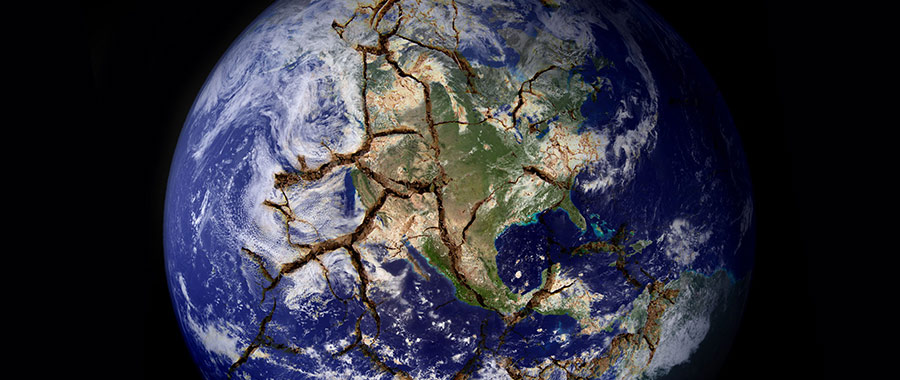The phenomenon of climate change has emerged as one of the most pressing issues of the contemporary era, transcending national boundaries and ideological divides. In the Bahá’í Faith, an emphasis on unity, peace, and justice fosters a unique approach to addressing this global challenge, advocating for solutions that rise above partisan interests. This perspective invites profound contemplation about human responsibility towards the Earth and emphasizes the interconnectedness of humanity.
At its core, the Bahá’í worldview recognizes that environmental degradation is not merely a scientific or technical issue; it is inherently ethical and moral. The teachings of the Bahá’í Faith assert the oneness of humanity—implying that the welfare of one is inextricably linked to the welfare of all. This principle suggests that the climate crisis can only be addressed through collective action, necessitating a departure from divisive party politics that often hinder progress.
The Bahá’í approach invites individuals to reflect on the underlying values that inform their responses to climate change. It critically examines why political factions often prioritize partisan advantages over collective well-being. In doing so, it encourages a shift in mindset to foster a cooperative spirit, allowing for collaboration that transcends political affiliations. This perspective can illuminate paths towards innovative solutions that benefit the entire global community.
An oft-overlooked aspect of climate change is its socio-economic ramifications. The Bahá’í teachings emphasize justice and equity, urging us to consider how vulnerable populations disproportionately bear the brunt of environmental disasters and climate-related economic disruptions. Recognizing these disparities prompts us to advocate for policies that uplift marginalized communities while mitigating climate impacts. Justice, from a Bahá’í standpoint, is a fundamental prerequisite for sustainable development.
Moreover, the Bahá’í writings highlight the profound relationship between human behavior and the natural environment. The manifold crises facing our planet—deforestation, rising sea levels, and biodiversity loss—are cited as results of humanity’s disregard for the interconnectedness of ecological systems. By fostering a more profound reverence for nature, individuals can cultivate stewardship rather than exploitation. This ethical framework aligns closely with contemporary ecological principles that advocate for harmonious coexistence with the planet.
Integrated into the Bahá’í perspective is the recognition that the pursuit of knowledge plays a pivotal role in addressing climate change. The Faith advocates for the application of scientific inquiry in understanding the complexities of climate systems. This rational approach underscores the importance of empirical evidence, steering discussions towards pragmatic solutions while ensuring that decision-making processes are informed by scientific rigor rather than conjecture or select political narratives.
In the realm of education, the Bahá’í teachings call for a reformed approach to disseminating knowledge. Educating younger generations about environmental stewardship, social responsibility, and the science of climate change cultivates informed citizens who are equipped to navigate and influence the discourse surrounding these pressing issues. Sustainability education invites a holistic understanding where ethical, scientific, and social dimensions coalesce to inspire comprehensive action.
Beyond education, the Bahá’í community is encouraged to actively engage in advocacy. This involves not merely raising awareness but pressing for comprehensive policy changes that reflect the teachings of justice and equity. Grassroots movements, characterized by their ability to unite individuals irrespective of political affiliations, can galvanize significant support for climate initiatives and drive transformations at the legislative level. This participation in civic life underpins the belief that individuals not only have the right but the responsibility to influence the policies affecting their communities and the planet.
The necessity for international cooperation becomes apparent when examining climate change in a global context. Climate change knows no borders; therefore, it requires coordinated responses that transcend national self-interest. The Bahá’í teachings advocate for a collective global ethos, promoting the idea that nations must collaborate rather than compete in the face of environmental degradation. International agreements should reflect shared accountability and a commitment to safeguarding the environment for future generations.
Moreover, intrinsic in the Bahá’í vision is the call to develop sustainable technologies that mitigate harm to the environment. This technological innovation must be pursued not only for economic gain but grounded in ethical considerations that prioritize planetary health over mere profitability. The intersection of spirituality and science within the Bahá’í framework posits that technological advancements must be accompanied by moral responsibility, ensuring that progress does not come at the expense of the Earth’s ecosystems.
Finally, the call to action extends to individual lifestyle choices. While systemic change is crucial, personal responsibility plays a significant role in addressing climate change. The Bahá’í teachings encourage individuals to assess their consumption patterns critically and to adopt more sustainable practices in their daily lives. This grassroots effort, when multiplied by an engaged populace, can create incremental yet significant shifts towards a more sustainable society.
In summary, the Bahá’í teachings present a multidimensional framework for understanding and addressing climate change beyond the confines of partisanship. They highlight the interplay between ethical stewardship of the environment, justice, knowledge, and collective action. By fostering a holistic perspective, individuals can contribute to a powerful narrative that unites rather than divides—one that propels humanity towards a sustainable future in harmony with the Earth. The reality of climate change demands our attention, our unity, and above all, our unyielding commitment to the principles enshrined in the Bahá’í Faith, that we may emerge with sustainable solutions that transcend political divides and align with our shared human dignity.
